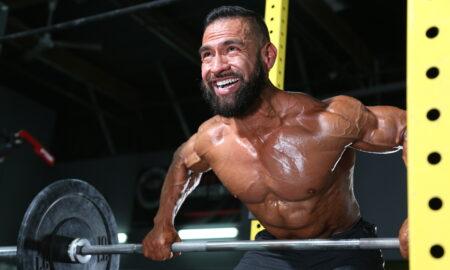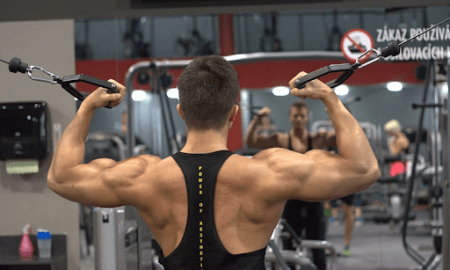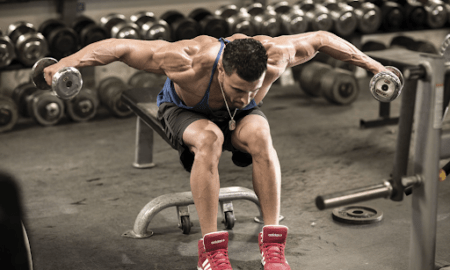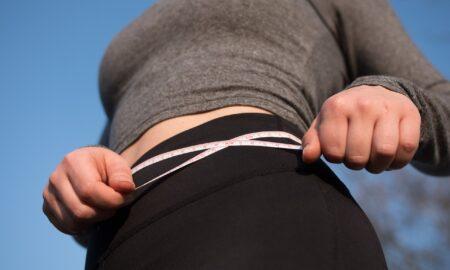Q: I’m getting ready for my first contest, and I heard something about postcontest depression. Is there such a thing? Have you ever experienced it? Is it something I need to be worried about?
A: That’s a great question and something rarely talked about. Yes, there is such a thing, and, yes, I’ve experienced it. I think that most physique athletes experience postcontest depression to some degree, but because we’re very independent and driven, no one brings it up. We think it’s a sign of weakness. It’s not, and it is something you should be concerned about.
Bodybuilding is very different from other sports. For most sports there’s a preseason in which you elevate your conditioning and hone your skills. Once the season starts, you generally have one or two games per week for two or three months (or more). You win some, you lose some, but you have numerous opportunities to participate and improve during the season. Generally, toward the end of the season you’re looking forward to some sort of playoff or opportunities to qualify for higher levels of competition, culminating in a state, national or world championship. Bodybuilding is so unlike that.
In bodybuilding it’s very common to compete in only one or two shows per year. It may take years to build enough muscle to be competitive. Once you have enough muscle and decide to compete, you will probably diet for 12 to 16 weeks—that’s three to four months of strict dieting—or more to get your bodyfat down to the ridiculously low levels that it takes to win. You add more cardiovascular exercise to your daily routine to burn the fat off and counteract the metabolic slowdown that accompanies your restrictive diet.
With showtime nearing, your focus narrows. Your life seems to be sucked into the black hole that we know as contest prep. It’s a love/hate relationship. You love the way it makes your body look, but you hate the constant fatigue, the diet and the lost opportunities to have fun with your friends—even when you want to and have time, you’re often too tired.
Contest prep consumes your consciousness. You roll out of bed early every morning to get your cardio done on an empty stomach. You can’t wait for that breakfast. You eat and head to work with the cooler of food you prepared the night before. Through the day you’re living for that next meal, while planning your training, your tanning time, your next cardio session and your posing routine.
If you’re ripped with weeks to spare, you worry that you’re not going to be able to maintain your muscle or that level of leanness until the show. Then you wake up one morning and realize, “Oh crap. When is the entry deadline? I don’t have my NPC card. Will I be able to get it in time?”
Show weekend finally arrives, you make the weigh-in, which is stressful in and of itself —“Do I look as good as that guy?”—and you’re excited and nervous. That makes for a really bad night’s sleep. The next morning it seems to be an eternity until the prejudging gets under way and you very impatiently wait for your turn to step onstage. Your class is finally called to line up. You’re sent out onstage in the bright lights. Your friends and family are yelling for you and the symmetry round is there and gone in a flash, and you file off and wait for the next round.
When you exit the stage for the last time, you’re exhausted but feeling euphoric over what you’ve done. You’re ready for lunch and a nap before the night show. Then it’s time to head back to the venue. You’re sore from the prejudging but your body answers the call.
You pump up, then you wait. When it’s time for your routine, you step out on the X and look out into a packed auditorium with everyone waiting to see what you’re all about as a bodybuilder. You can perform and enjoy the 90 seconds or you can be scared back into your shell, but either way you’re up there for just a minute and a half, and all eyes are riveted on you.
After your routine you wait to see how you placed. If you’re one of the lucky ones, you’re handed a trophy. If you were fortunate enough to win your class, you’ll have another shot onstage when you pose for the overall title.
When the contest is over, you go out with your friends and family and have a celebratory meal. They’re proud of you, and you’re proud of yourself. You’re totally exhausted, but you’re happy that you did it and, usually, relieved that it’s over.
The full impact doesn’t hit you until Monday morning, when it’s time to go back to the weekly grind. No morning cardio. You’re not packing a cooler, watching the clock for your next meal time. You can eat anytime you want and whatever you want, so you indulge in those doughnuts and pastries in the break room. At lunch you grab a burger and fries with your buddies.
By bedtime Monday night your belly is distended, and all that muscular detail that you worked so hard for is going bye-bye at an alarming rate.
The dieting and the constant fatigue sucked, but you miss it. You try to think about your next show, but a year (or even six months) seems like eons away. You have a major hole in your life. As if that’s not depressing enough, in two weeks you’ve gained back all the fat that it took you months to lose. People are no longer asking you questions about the show, and all those admiring looks and comments you were getting while you were in contest shape are nonexistent. Postcontest depression? You better believe it.
It’s much worse for some people than others. The years that it’s been more severe for me are those in which I competed in only one show. Putting too much emphasis on winning—as opposed to my own improvement—also makes it worse.
So what can you do to diminish the letdown after a show?
Number one, I try to schedule several contests to compete in while I’m in top shape. If I don’t get quite as lean as I want for the first one, I have a few more weeks to lose a little more bodyfat and harden up. I find it’s best if I can schedule a couple of shows within three to four weeks of the first one. I have a chance to improve my condition, my posing and my placing.
Also, I don’t pig out on junk food after a show anymore. Of course, if I have more shows to compete in within a short time, I know that I can’t afford to eat poorly or overeat. Even if it’s my last show of the year, though, I plan to eat grilled chicken or fish along with some rice or pasta and vegetables. I might allow myself a small dessert, but that’s about it. Your body isn’t used to getting a high dose of fat and sugar, and loading up will put it into a major tailspin. I gradually introduce more carbohydrates and calories into my diet over the course of several weeks so I don’t have to watch my cuts disappear on an hourly basis. I continue looking great for weeks after the last show, which makes me feel much better about myself.
Another thing that keeps me sane is going back into the gym and training hard the week after a show. Rather than dropping my cardio, I taper it down over two or three weeks as I gradually increase my calories. That helps me gain back strength and muscle with less bodyfat gain.
As for filling my extra time, I like to spend more time with my family, watch football and play guitar. It’s very convenient that my competitive season usually ends in the fall, when my favorite team, the Texas Longhorns, are getting into the meat of the football season. The Longhorns have consistently won at least 10 games a year. If they were losing on a regular basis, that might add to my postcontest woes.
Set some short-term goals too. For 15 years I competed in at least one powerlifting meet every year in the off-season. As soon as I finished my bodybuilding season, I had another event to focus on and prepare for. The heavy training was great for my physique, and having the meet to work toward satisfied my desire to compete. Photo shoots or guest-posing appearances can also help. They give me something to focus on and train for in the short term while getting accustomed to the fact that it’s a very long time until I’m going to compete again.
You’re now educated on what can happen after a show, and you have some ideas on how to reduce or avoid depression. Please don’t think that you’re so tough-minded, it can’t happen to you. Gradually work yourself back into off-season training and eating. Focus on short-term goals, and think about fun activities to occupy your time, and you’ll save yourself considerable mental anguish.
Good luck with your show. E-mail me and let me know how you do.
Note: Dave will be guest-posing at the NPC Texas State Natural in Stafford, Texas, on July 18 and at the NPC Capital of Texas Roundup on August 1. Dave is available for personal training, guest posing, seminars, and master of ceremonies.




















You must be logged in to post a comment Login